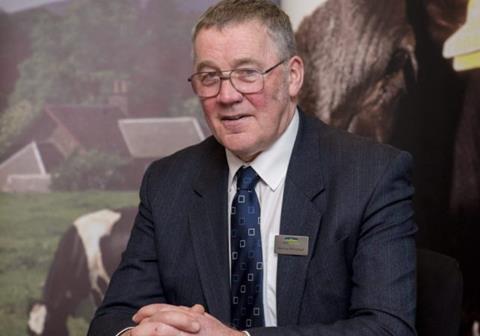A summit organised by NFU Scotland in Inverurie, Aberdeenshire, this week focused on securing a profitable and productive Scottish beef sector against the backdrop of some of the poorest prices in recent times.
In attendance at the meeting were representatives from Quality Meat Scotland (QMS), the Scottish Association of Meat Wholesalers (SAMW), Scotland Food and Drink, the Scottish Beef Association (SBA), National Sheep Association (NSA), the Institute of Auctioneers and Appraisers in Scotland (IAAS), the Scottish Federation of Meat Traders Association (SFMTA) and the Scottish Government.
It is clear that challenging conditions in the beef market are being experienced at all levels of the supply chain, and Scottish Government has announced plans to hold a special beef summit in Stirling in the coming weeks, to be chaired by Cabinet Secretary Fergus Ewing.
Stakeholders at this week’s meeting recognised the serious market situation currently facing the Scottish beef sector with some farmers receiving almost £200 less per head for their cattle over last year. Representatives also highlighted the significant uncertainties facing the sheep sector with on-going Brexit frustration ahead of the main store sales commencing next month.

NFU Scotland president Andrew McCornick, who chaired the meeting, said “Red meat produced in this country ticks all the boxes for sustainability. Scotch Beef PGI and Scotch Lamb PGI come from quality assured farms and crofts that are rigorously inspected and go through all the checks necessary to ensure that our beef and lamb is produced to the highest standards.
“In light of the current crisis in the beef sector, and Brexit looming, this week’s meeting was an opportunity for all voices in the Scottish livestock sector to have their say on what a profitable and productive Scottish industry would look like, and what action has to be taken to secure that.
“The membership organisations recognised the work being done by QMS and Scotland Food and Drink to develop and open up new markets for Scotch Beef and Scotch Lamb and we want to see greater investment in this area, recognising the long-term opportunities this could bring for our industry. The trade associations also agreed that more could be done to ensure clearer country of origin labelling (COOL) on processed or lightly processed products. Packaging can claim Scottish credentials while not including Scottish meat and clarity on this would give the shopper the transparency, they need to support Scottish farmers and crofters.
“There is clearly no silver bullet to the challenging conditions facing the sector, but all the membership organisations present agreed to work together on improving the situation. Those present also agreed that the Government needs to outline greater detail on how it will support the sector until 2024 and that investment is needed to support livestock farms and crofts in contributing to Scottish climate change targets.
“There was also general agreement from the membership organisations in the room that domestic governments need to do more to ensure that Scotch Beef and other domestic produce is fully utilised in public procurement. Equally we need to see greater effort from the food service sector in procuring and promoting a Scottish food offering. We believe that, in both cases, the story behind the quality and standards of Scottish farming and produce present a tremendous opportunity to build on.
“We are grateful that representatives from the Scottish Government, QMS, Scotland Food and Drink and all the membership organisations were able to attend and contribute and the industry looks forward to working with public bodies to drive forward our industry.”
This story was originally published on a previous version of the Meat Management website and so there may be some missing images and formatting issues.















